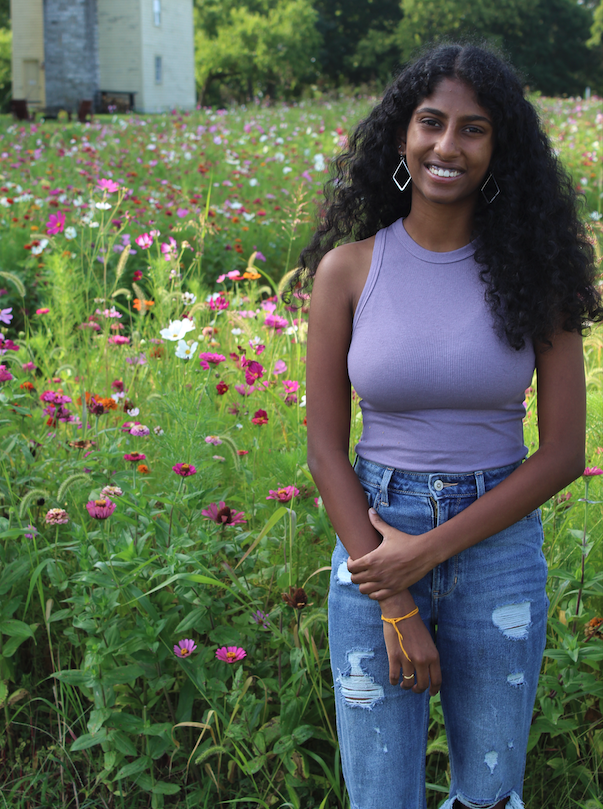By Avery Schanbacher and Francis Von Mann

LEXINGTON, Ky. (May 9, 2025) -- Diksha Satish has always been a problem solver with a passion for helping people. That passion led her to pursue dual degrees in mathematics and biology at the University of Kentucky, combining analytical thinking with a desire to improve lives through science.
This Friday, Satish will graduate from the UK College of Arts and Sciences with dual degrees. Her academic journey has been shaped as much by research as by coursework.
During her first year at UK, Satish joined Lance Johnson’s neuroscience lab in the College of Medicine Department of Physiology. There, she investigates genetic risk factors for Alzheimer’s disease.
“Specifically, there’s this genetic risk factor called apolipoprotein E and E4,” says Satish. “Basically, we’re looking at why it’s a risk factor, and how we can change or affect it to be less of a risk factor at the molecular level.”
This hands-on research experience deepened her interest in the biological sciences and helped her connect classroom theory with real-world applications.
Beyond the lab, Satish is a vocal advocate for undergraduate research at UK. She has served as an ambassador with the UK Office of Undergraduate Research and played a key role in expanding student research opportunities.
She co-founded Aperture, the university’s undergraduate research journal, serving as both co-editor-in-chief and co-chair of its editorial board. She also co-produces and co-hosts the OUR Podcast, which shares the stories of student researchers across disciplines.
One of Satish’s standout projects blends science with the humanities. With an interest in film studies, she began researching how autism is portrayed in American documentaries—an effort she hopes will help reshape cultural narratives.
“It’s nice being in the College of Arts and Sciences because it is so interdisciplinary,” Satish said. As someone with an interest in film studies, Satish has been combining her love for film with her experience in clinical areas through her research on portrayals of autism in American documentaries. She hopes this project will help analyze and reshape cultural dialogues surrounding the topic.
“Especially since I work with disease such as Alzheimer’s disease and neurodevelopmental disorders such as autism and ADHD, it’s really interesting because those sorts of ‘disorders’ tend to have a much more social aspect than most,” she said.
As a Gaines Fellow, Satish has explored how medical research intersects with social and cultural factors, shedding light on the lived experiences of neurodivergent individuals.
“I’m getting to look at these social impacts and social factors that exacerbate the barriers to integrating into society that people with autism might have have, because it’s not necessarily built with people who are neurodivergent in mind,” she said.
After graduation, Satish will continue her research in Dr. Johnson’s lab while preparing for medical school. Her goal is to bring a multidisciplinary lens to medicine, combining data, human experience and storytelling to shape the future of health care.
